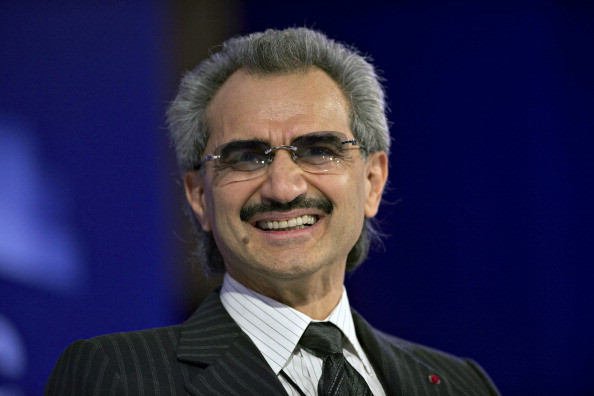It's time for Saudi women to drive says outspoken Prince Alwaleed bin Talal
Member of Saudi royal family says some bans are 'more restrictive than what is allowed by religion'.

A Saudi Arabian prince has called on authorities in the Kingdom to lift a ban on women driving. Prince Alwaleed bin Talal, an outspoken member of the Saudi royal family, said on his Twitter page it was "time for women to drive".
Bin Talal's office later issued a statement explaining why the prince supports an end to the ban.
"Preventing a woman from driving a car is today an issue of rights similar to the one that forbade her from receiving an education or having an independent identity," the statement was quoted by news agency AFP as saying.
"They are all unjust acts by a traditional society, far more restrictive than what is lawfully allowed by the precepts of religion."
Bin Talal also highlighted the "economic costs" caused by women who have to rely on "foreign" private drivers or taxis.
"Having women drive has become an urgent social demand predicated upon current economic circumstances," continued the statement.
ÙƒÙÙ‰ نقاش:
— الوليد بن طلال (@Alwaleed_Talal) November 29, 2016
Øان وقت قيادة المرأة للسيارةhttps://t.co/BBgyF8i1Gs
Stop the debate:
Time for women to drivehttps://t.co/6KAniFa4BT
Who is Prince Alwaleed bin Talal?
The 66-year-old billionaire prince is the grandson of King Abdul-Aziz Alsaud, the founder and first ruler of Saudi Arabia. Bin Talal is famous for, among other things, claiming he would give his $30bn fortune to charity.
He also made headlines in April 2014 when he promised to buy Bentleys for Saudi pilots who had taken part in the air bombing of Yemen. He later withdrew the offer.
In March 2014, the prince accused Forbes magazine of undervaluing his personal fortune.
The publication had estimated Bin Talal's wealth to be $20bn (£12.8bn), but the prince said he was worth $30bn, making him the tenth richest man in the world
Saudi Arabia is the only country in the world where women are not allowed to drive.
In December 2014, the Kingdom arrested two Saudi women for flouting the ban.
Loujain al-Hathloul and Maysaa al-Amoudi spent 73 days in prison.
Hathloul was arrested shortly after she documented her attempt to defy the ban, claiming that her driving licence, from the United Arab Emirates, could also be used in Saudi Arabia.
Al-Amoudi entered Saudi Arabia by car from the UAE shortly after the arrest, to support Hathloul by delivering food, water and a blanket. She was then arrested too.
Saudi Arabian women have demonstrated against the ban since 1990, when some 40 female activists drove their cars in the capital Riyadh, where they were arrested and had their passports confiscated.
Similar campaigns were launched in 2011 and 2013, while in 2007 some women petitioned the late King Abdullah to lift the ban.
© Copyright IBTimes 2025. All rights reserved.






















